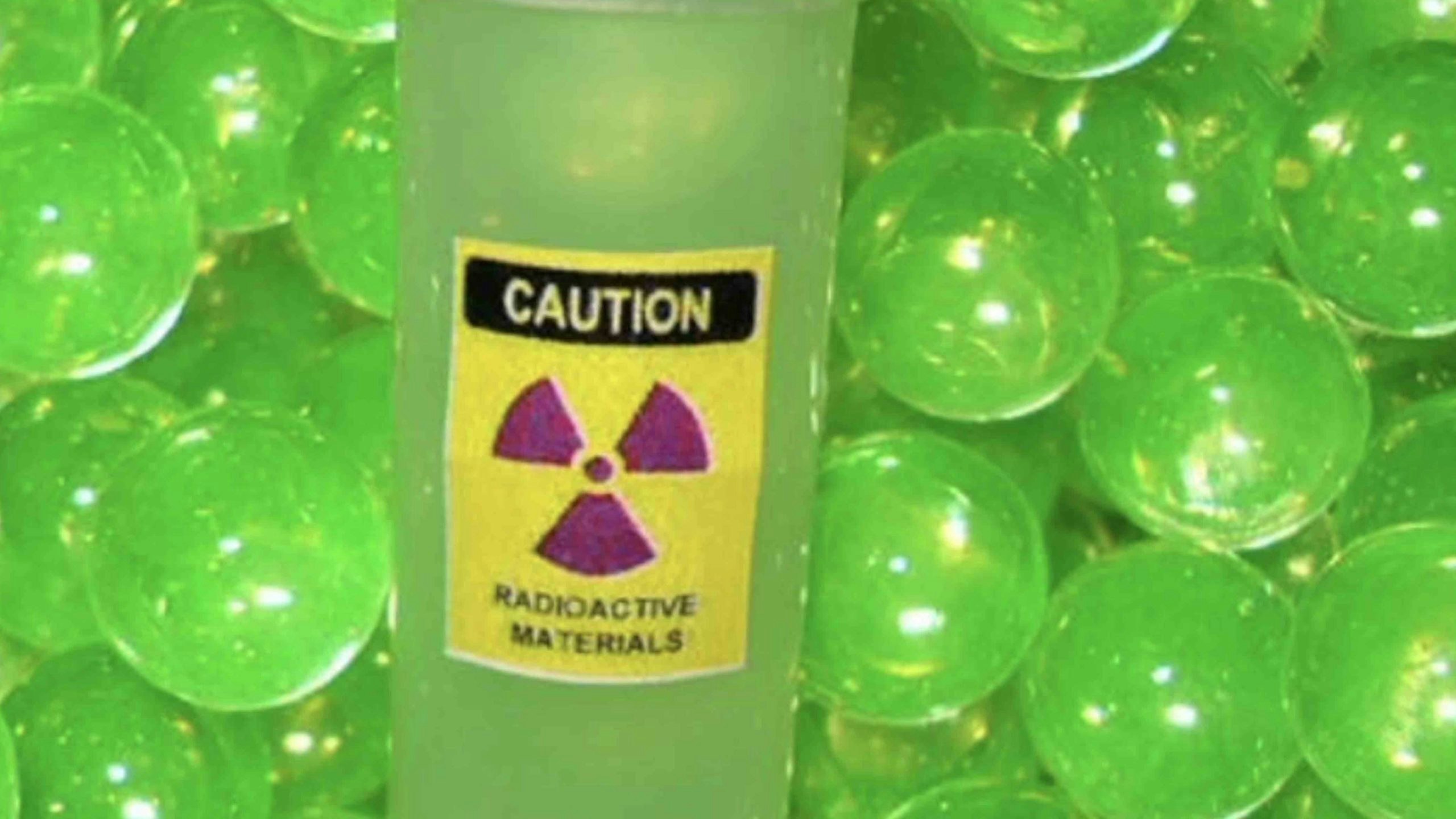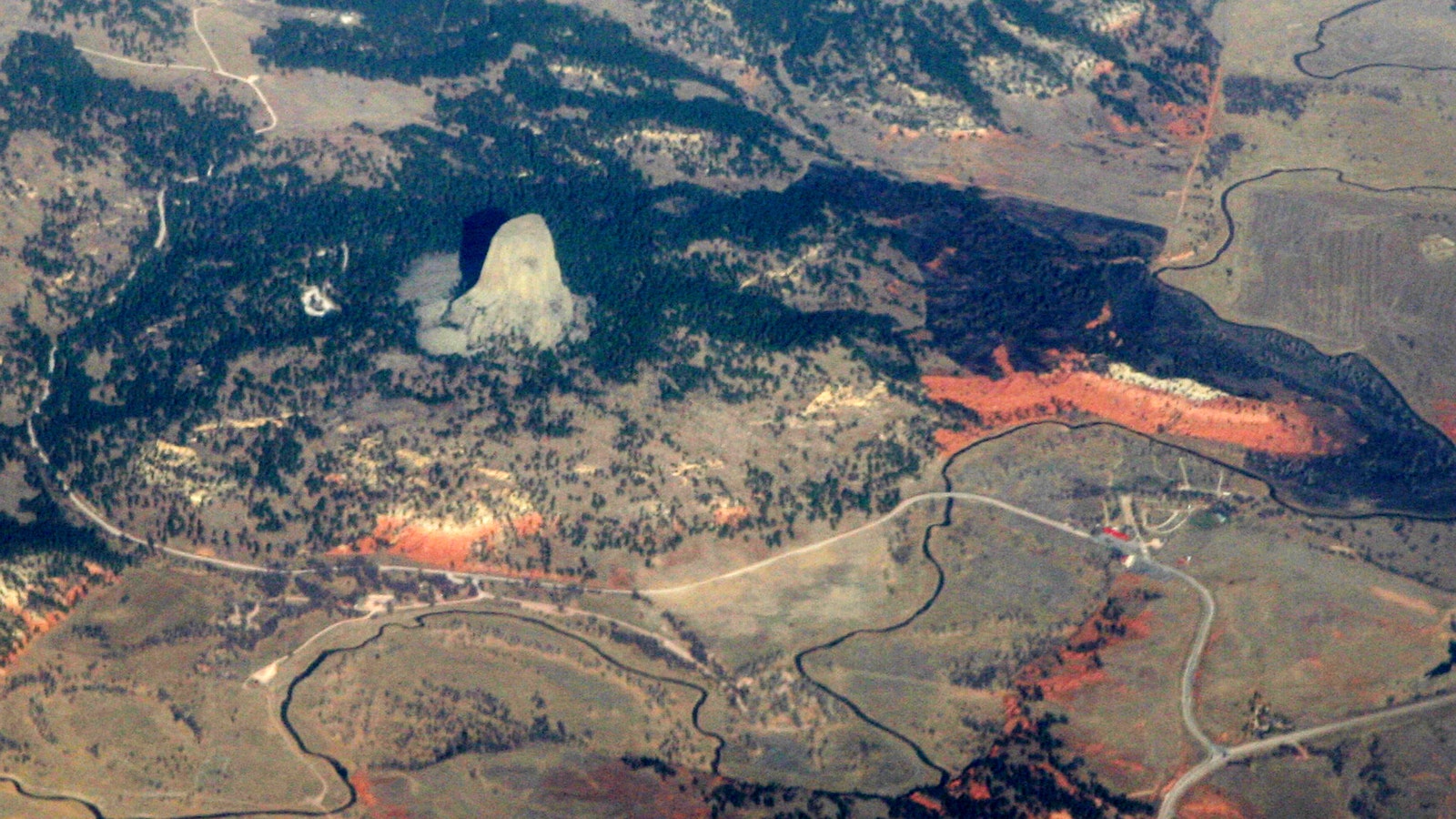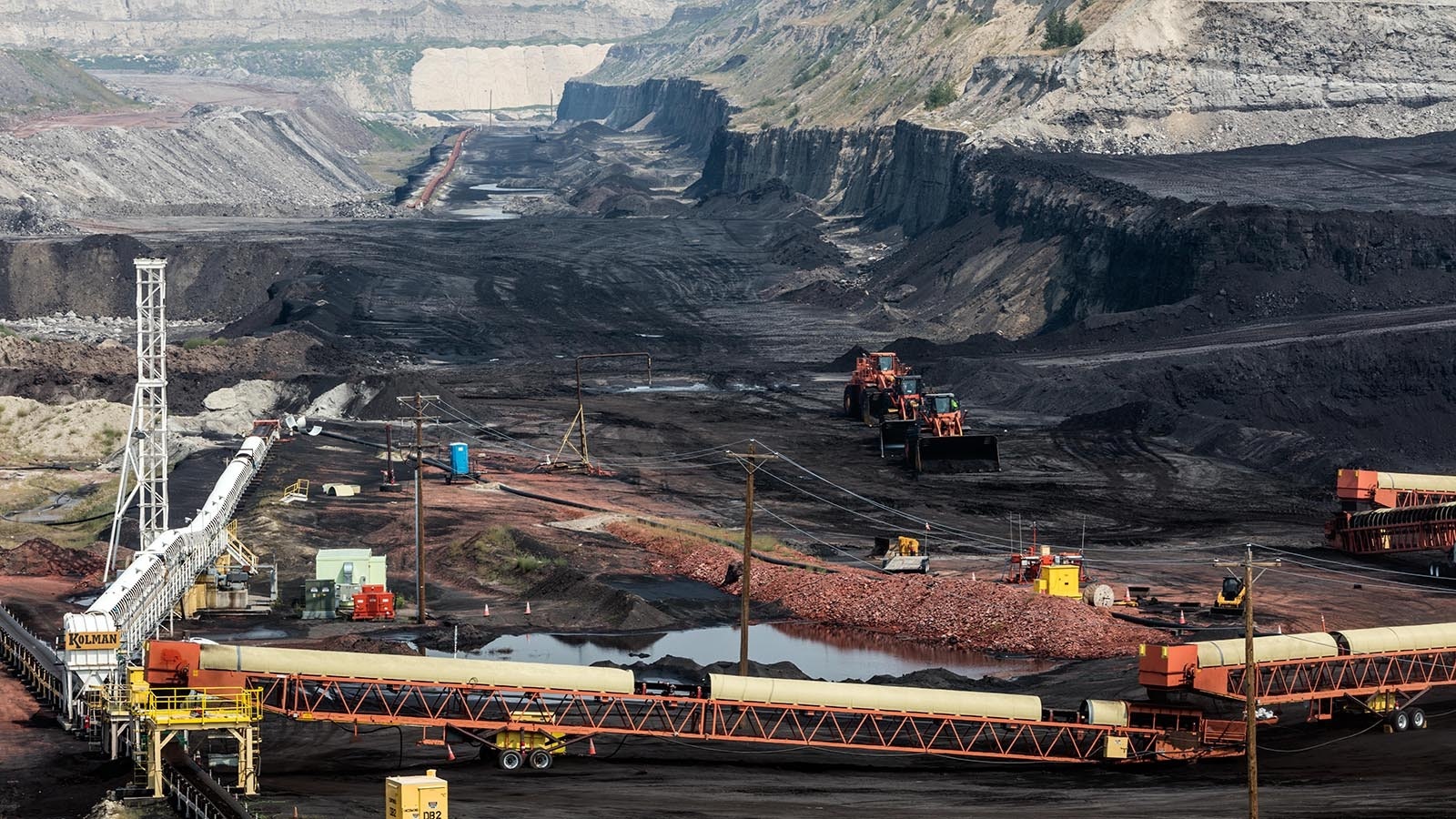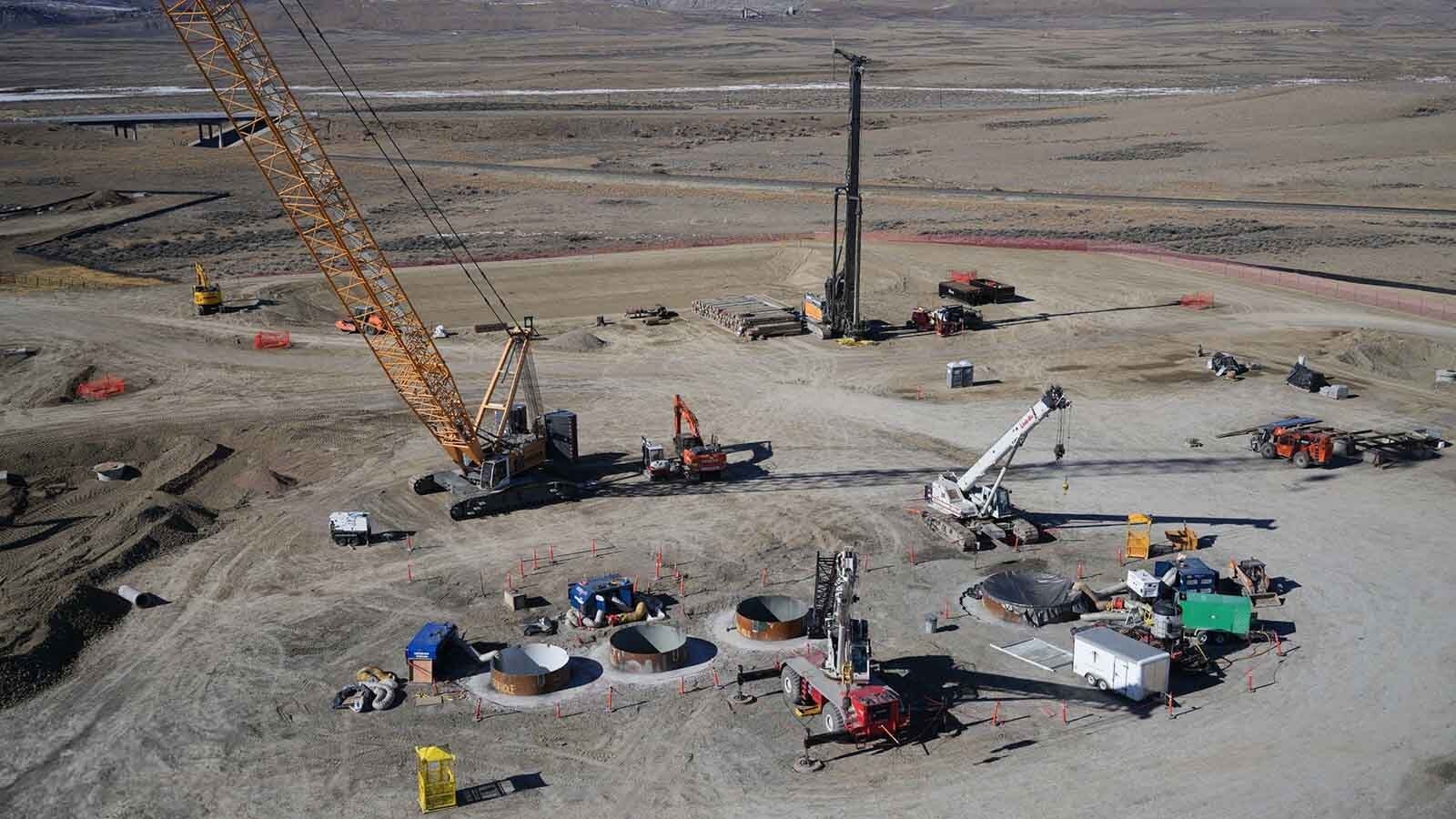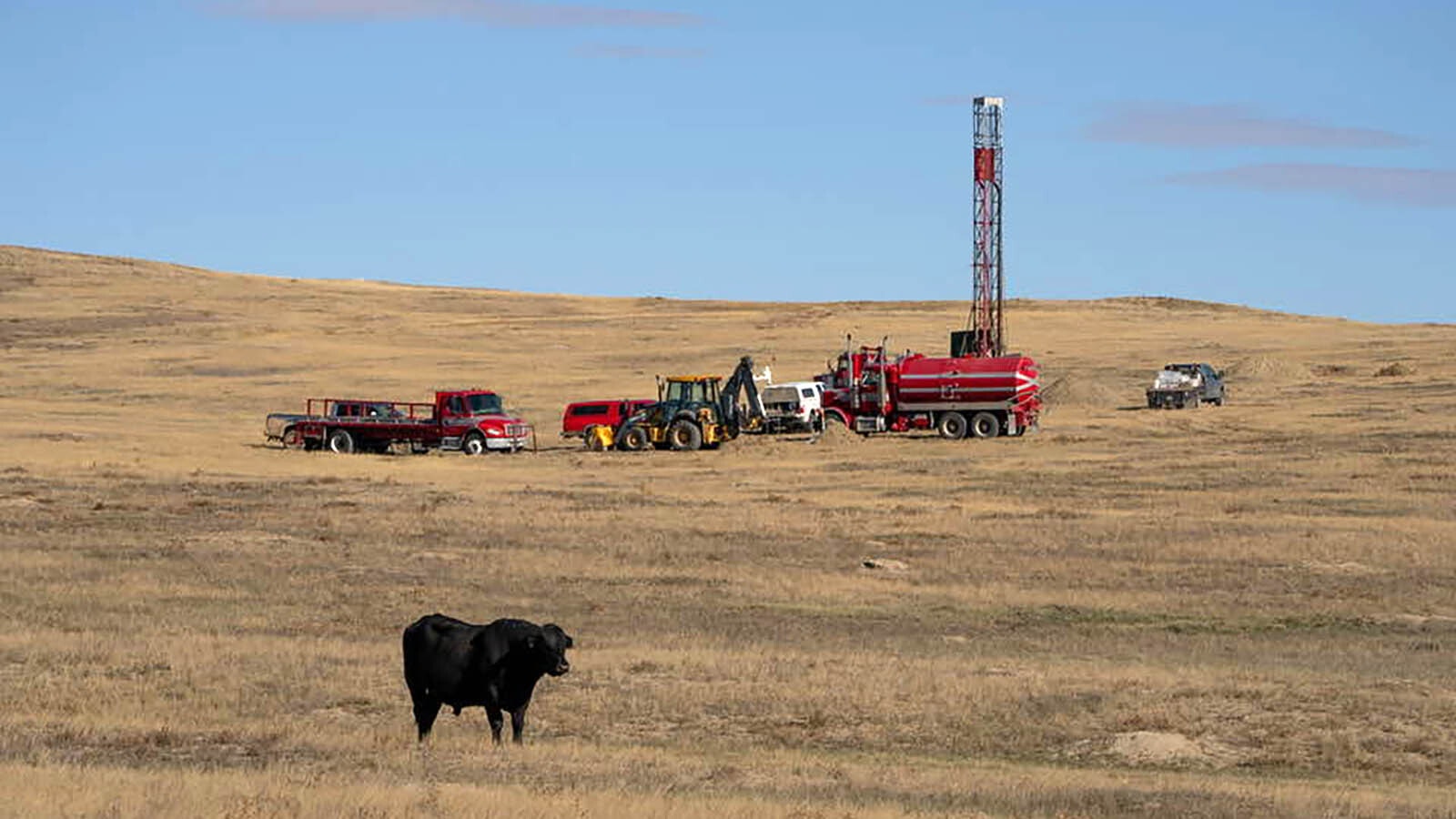Production at Wyoming’s uranium mines all but ground to a halt in recent years as prices bottomed out, but business is looking up as global stockpiles wither and America reconsiders purchasing strategic minerals from its enemies.
The resulting boost in prices has Wyoming producers looking at the possibility of restarting production.
“With the Russian invasion of Ukraine, it all came to light how dependent we are on Russian control of the fuel cycle,” said Travis Deti, Wyoming Mining Association executive director. “Any uranium we mine here in the States has to go to Russia for conversion and enrichment.”
With 92 of the world’s estimated 435 nuclear reactors located in the U.S., America is the world’s largest supplier of nuclear power — a process fueled by yellowcake uranium.
When used to fuel a reactor, about 1 pound of uranium can produce the same amount of energy as 20,000 pounds of coal, the WMA reported.
Following the 2011 Fukushima nuclear disaster in Fukushima, Japan, however, global uranium stockpiles became inflated, driving down the price of a pound of yellowcake to a low of about $17.
“We have the capability to produce, but that’s dependent on the price per pound,” Deti said. “For the last couple of years, the price has been so depressed, it’s not been economical to mine the resource in Wyoming.”
‘Decade Of Underproduction’
Scott Melbey, president of Uranium Producers of America, said global uranium stockpiles are dwindling, causing yellowcake prices to rise.
Melbey also serves as the executive vice president of Uranium Energy Corporation, which owns assets in Wyoming’s Powder Basin and Texas.
“The price of uranium has jumped to $50-$60 a pound recently,” Melbey said. “We’re comfortable enough with the current market that we’ll be restarting operations in Wyoming and Texas.”
In northeast Wyoming, Peninsula Energy Limited CEO Wayne Heili is eyeing the markets as he and his team consider restarting Strata Energy Incorporated’s uranium mining operations.
“We certainly saw a spike in prices during the beginning of the war in Ukraine, but I don’t think it’s a blip in the market,” Heili said, explaining prices have leveled in the months since the Russians’ initial push. “And I anticipate prices will continue to rise, because the world has experienced a decade of underproduction.”
Unlike some mineral extraction operations, rebooting a uranium operation is a lengthy process.
Melbey said his company was well-positioned to begin extraction before the end of the year, but Heili said the earliest his operations would be online would be the first quarter of 2023.
Strategic Uranium Reserve
Uranium prices are only one piece of the puzzle, however. Melbey, Heili and the rest of Wyoming’s producers have reason to believe stateside uranium production could become more common in the next few years.
In 2019, former President Donald Trump’s administration formed the U.S. Nuclear Fuel Cycle Working Group, which determined the nation’s reliance on foreign uranium production presented a national security risk, Deti said.
As a result, Trump’s administration proposed establishing a Strategic Uranium Reserve (SUR), which could stockpile about 10 years’ worth of uranium. To create the stockpile, Deti said the Trump administration wanted to spend $1.5 billion over a 10-year period to purchase uranium from U.S. producers.
In 2020, Congress authorized spending $75 million to establish the SUR, but the U.S. has yet to start purchasing American-produced uranium.
Additionally, Sen. John Barrasso, R-Wyoming, introduced legislation in March which could prohibit the U.S. from importing Russian uranium.
In an email, Barrasso’s deputy communications director, Sarah Durdaller, said the senator was pushing to eliminate American reliance on Russian fuel exports.
“(Barrasso) stated, ‘The time is now to permanently remove all Russian energy from the American marketplace,’” Durdaller wrote. “‘We know Vladimir Putin uses this money to help fund his brutal and unprovoked war in Ukraine. While banning imports of Russian oil, gas and coal is an important step, it cannot be the last. Banning Russian uranium imports will further defund Russia’s war machine, help revive American uranium production, and increase our national security.’”
As awareness grows of the risks of relying on foreign and sometimes hostile countries for the nation’s fuels, the uranium industry could write a new page in Wyoming’s history book.
The atrocities of war are no cause for celebration, Melbey said, but one outcome of the Ukrainian conflict could be a secure line of production for U.S. nuclear reactors. Regardless of the war, he said American producers are gearing up to meet rising global demands.
“My optimism is based on the fundamentals of supply and demand,” Melbey said. “The Russia-Ukraine war is a geopolitical black swan that throws gas on the fire, but the fire was already lit.”

